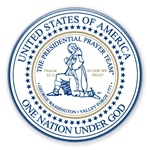Have you ever wondered if your life has a purpose? The Word of God says it does—one that is both noble and desirable: Every believer was created by God to love and be loved.
God loves you personally and individually, without limit or qualification. He desires to shower you with His affection and kindness. Let me assure you of several things:
God’s love is the most important thing we can know about Him.
The very essence of God’s being—in other words, His personality and nature—is love (1 John 4:8). It is the reason Jesus came to earth, lived a victorious life, and then died to restore man’s relationship with the Father (John 3:16). The most important decision we can ever make is to receive this gift of God.
The Lord’s affection is absolute, unwavering, and sacrificial. Moreover, God’s love is not subject to favoritism. He cares for the sinner as much as He does for the saint. In our human pride or our desire to be “somebody special,” we may find that fact difficult to swallow. But God grants love to each person.
The Bible tells us that the rain falls on the just and the unjust, and the sun shines on the righteous and the wicked (Matt. 5:45). This means that with or without faith in God, everyone experiences certain benefits and blessings from Him. But the person who receives Jesus as Savior is in a position to reap the blessings that accompany an outpouring of love into his or her life.
The Lord’s love is not based upon what we do, what we have, or what we achieve. He freely gives it to us simply because we are His creation. You cannot win or earn more of God’s favor—it has nothing to do with performance. Accept and delight in that truth.
The most important response we can make is to reciprocate God’s love.
John said it simply and eloquently: “We love Him because He first loved us” (1 John 4:19, NKJV). And Jesus said the first and foremost commandment was this: “You shall love the Lord your God with all your heart, and with all your soul, and with all your mind” (Matt. 22:37). The only acceptable response to God’s great outpouring of love toward you is to love Him back.
We can choose to rebel. And while this doesn’t affect God’s nature, it will change us. Those who refuse to acknowledge and receive divine love cut themselves off from great blessing. Not only that, but such individuals typically yield to anger, hatred, and bitterness. To harden one’s heart toward God is the supreme act of rebellion—in doing so, a person hurts himself far more than he hurts others. Humbly receiving God, on the other hand, brings good into one’s life.
Satan constantly tries to convince us that if we follow Jesus, we will have to give up personal freedom, identity, and pleasure. But those who live apart from God’s love inevitably discover their rebellion did not make them any freer. They may not go to jail, but they end up in emotional or psychological prisons—caught in addiction or trapped by feelings of resentment. The longer they live separated from the Lord’s love and mercy, the less pleasure they find in life. In that situation, it is easy to become cynical, jaded, critical, and in the end, apathetic to nearly everything.
But those who embrace and reciprocate God’s love enjoy inner freedom they never imagined. They develop as individuals, discovering hidden talents and abilities. They experience true delight in God’s creation and know the joy of perpetual discovery.
When we choose to love and obey God, we can be sure He will guide us toward doing what will bring about the greatest fulfillment in life.
God’s love is our ultimate reason to hope.
If we know with certainty that God loves us and desires good for our lives, what is there to fear? Hope in Christ is for everyone. It compels us not to remain in a state of dread, doubt, or worry but to seek transformation by the Holy Spirit’s power. Trust encourages us to anticipate God’s best and look for the dawning of a new day.
Our heavenly Father is generous—even extravagant—in His love. Open your heart and let the Lord shower more of His good gifts upon you. You won’t regret yielding your life to Him.
Adapted from “Discover Your Destiny” (1997).
Related Resources
- How can I get to know God better?
- How can I deepen my relationship with God?
- Why is it important that I know God?
Related Video
If you ask the average person if he loves God, his answer will probably be “yes.” However, words alone are not proof of love. In fact, we use the word love rather loosely, ascribing it to the most treasured people in our lives as well as our trivial preferences. In this message, Dr. Stanley explains why the Lord should have a prominent place in our hearts and why our love for Him should permeate every area of our lives. (Watch Loving God.)







